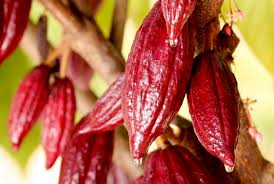The Ghana Cocoa Board (COCOBOD) posts GH¢2.3bn profit in 2023 and ends its six-year losing streak, following the restructuring of cocoa bills worth GH¢7.9 billion.
The cocoa regulator posted a profit of GH¢2.3 billion in the 2022/2023 crop season after posting losses of GH¢199 million, GH¢395 million, GH¢78 million, GH¢275 million and GH¢426 million in the preceding years.
The COCOBOD launched a debt securities exchange programme last year to restructure cocoa bills.
Under the programme, the board invited holders of its short-term debt securities (the Cocoa Bills) to voluntarily offer to exchange their Cocoa Bills for longer-term debt securities with averagely lower coupon rates.
According to the report by Daily Graphic on Tuesday, holders of the Cocoa Bills whose offers were accepted received five new bonds, which would mature in 2024, 2025, 2026, 2027 and 2028. The new bonds came at a coupon rate of 12.5%.
It added that the successful completion of this aspect of the domestic debt exchange programme was very crucial to the country’s quest to restore debt sustainability, which is a critical component of the IMF programme.
As per the IMF’s methodology and as explained in their Staff Report published on May 17, 2023, cocoa bills are included in the public debt perimeter, considering the risk and contingent liability on the government debt profile.
The IMF/WB debt sustainability analysis has demonstrated unequivocally that Ghana is faced with a significant financing gap over the coming years and that the country’s public debt (including COCOBOD’s cocoa bills) is unsustainable.
The report said that the Chief Executive Officer of the Ghana Cocoa Board, Joseph Boahen Aidoo, told journalists after a field trip to some cocoa farms in the Central and Western regions that “before the restructuring, we were paying interest of around 30 per cent. However, with the restructuring, the coupon rates have reduced to 12.5%.”
GIK/APA
COCOBOD posts GH¢2.3bn profit in 2023 fiscal year


